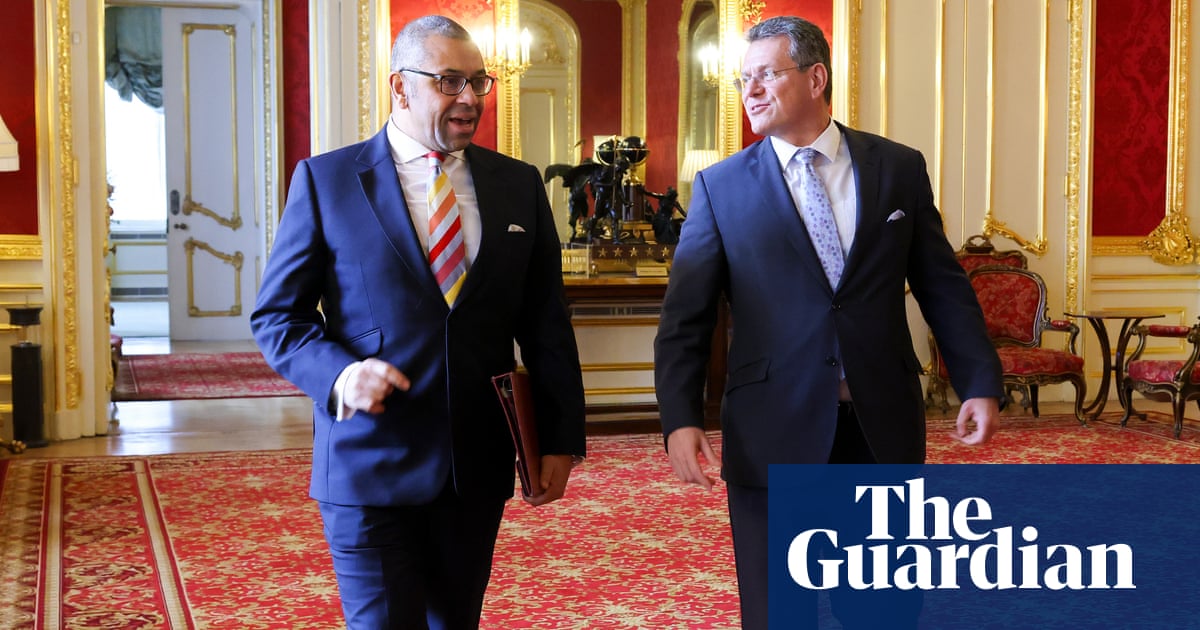
The EU’s chief negotiator, Michel Barnier, has warned David Frost that without a major negotiating shift by Downing Street within the next 48 hours he will pull out of the Brexit negotiations in London this weekend, pushing the talks into a fresh crisis.
In talks via videoconference on Tuesday, Barnier told his British counterpart that further negotiations would be pointless if the UK was not willing to compromise on the outstanding issues.
Should Barnier effectively walk out on the negotiations it would present the most dangerous moment yet for the troubled talks, with just 36 days to go before the end of the transition period.
While Brussels might hope such a move would put the UK prime minister under pressure to give Frost new negotiating instructions, it might also embolden those within the Tory party who believe no deal is the better outcome.
During a speech in the European parliament on Wednesday, the European commission president, Ursula von der Leyen, said the EU was willing to be “creative” to get a deal with the UK but admitted an agreement was in the balance with “very little time ahead of us”.
Physical talks are on hold after a member of the EU negotiating team tested positive for coronavirus, but Barnier is expected to leave quarantine on Thursday evening. He is due to head to London on Friday for a last-ditch push for an agreement once he receives a negative coronavirus test.
“These are decisive days for negotiations with the United Kingdom,” Von der Leyen told MEPs. “But, frankly, I cannot tell you today if in the end, there will be a deal.”
“We will do all in our power to reach an agreement. We’re ready to be creative,” she said. “But we are not ready to put into question the integrity of the single market, the main safeguard for European prosperity and wealth.”
Von der Leyen said legal texts on judicial and social security coordination, trade in goods and services and transport were almost finalised. “However, there’s still three issues that can make the difference between a deal and no deal,” she added.
She said fishing communities needed “predictability” from year to year over access to British waters, in a reference to Downing Street’s wish to hold annual negotiations over catches in UK seas, with the option of blocking access.
On state aid, Von der Leyen said the EU was seeking a mechanism through which any breach of agreed principles controlling domestic subsidies could be swiftly remedied.
The EU is also seeking a mechanism to ensure there are consequences for either side within the trade deal if standards diverge over time.
“Significant difficulties remain on the question, how we can secure now, and over time, our common high standards on labour on social rights on the environment, the climate change and tax transparency,” Von der Leyen said. “We want to know what remedies are available in case one side will deviate in the future. Because trust is good, but law is better.”
There is concern among some member states that the UK is successfully pushing the commission into making concessions that will give British businesses an advantage in the marketplace over the decades to come.
Von der Leyen offered assurances that the commission’s negotiating team was being open-minded as to how to bridge the gaps between the two sides, but that they were holding firm on key principles. She called on leaders to back any compromise that emerges.
The talks were in their “decisive days”, she said, adding: “It is when we negotiate hard, and then stick to the compromise found that we move forward fast.”
EU leaders are due to meet on 10 December. The European parliament is due to hold a special session on 28 December to give its consent to a deal. However, any agreement would need to be finalised in the coming days to allow time for legal and parliamentary scrutiny and translation.











